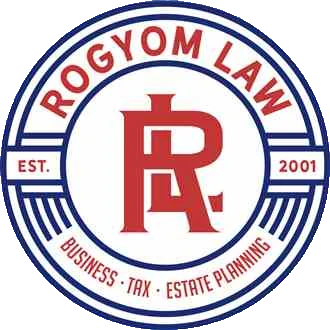It’s common to hear Maryland trust attorneys and others refer to trusts, but you may not know exactly what they are or why they are needed. A trust has a separate legal identity from both the person who formed it and the people it is benefiting, like a corporation or an LLC. The trust may own property in its own name and may even have a separate tax ID for its dealings with the IRS.
Its “settlor” founds the trust, and the people the trust will benefit are its “beneficiaries”. A “trust agreement” governs the administration of the trust, and the person who manages the trust is its “trustee”. The trustee handles safeguarding the trust’s assets and distributing the assets to the beneficiaries according to the instructions provided in the trust agreement.
Trusts have two general forms: revocable and irrevocable. Revocable trusts can be amended or even be revoked, as the name implies. That revocability usually ends at the settlor’s death. The most common type of revocable trust is referred to as a “living trust.” Maryland estate planning attorneys form living trusts as a substitute for a Last Will & Testament.
The settlor and others, following the formation of the trust, may put assets into the trust immediately or may wait until a later time. Often, the trust may not even be funded until the settlor’s death. To fund the trust at death, the settlor’s Last Will & Testament may say, for instance, “I hereby give X dollars and my house to the John Smith, Jr as Trustee of the John Smith, Sr Irrevocable Trust.”
This allows the settlor to have access to the funds throughout their
While the settlor has the choice of forming and funding a trust during their lifetime, the trust can also be formed within the settlor’s Last Will and Testament. A trust formed during the life of the settlor is called an intervivos trust, while a trust formed at death is called a Maryland testamentary trust.
With testamentary trust, the settlor’s Last Will and Testament will say something such as “I hereby form the Tom Smith Testamentary Trust” and will then provide the terms of the trust agreement. A testamentary trust can receive its assets by bequests from the Last Will & Testament or by beneficiary designations, such as the proceeds of a life insurance policy or a retirement account.
People form trusts for many reasons and often for combinations of reasons. The most common reason, of course, is for estate planning. For estate planning purposes, the Maryland trust will be used to minimize taxes, avoid probate, or avoid giving assets directly to a beneficiary.
Sometimes, the settlor wants the money to be distributed to the beneficiary over an extended period, wanting the funds to last multiple generations. In such cases, the trust agreement may provide the criteria for when money can be distributed. Maybe the settlor will want the trust to allow its funds to be used for fairly broad purposes and include the common “HEMS” standard for Health, Education, Maintenance, and Support.
In contrast, sometimes the settlor will want trust funds to be used for very specific purposes and will have the trust agreement say it can only be used, for instance, for Catholic high school education, a down payments on a house, or Orioles World Series tickets. It may seem like the person is trying to control their family from the grave, and sometimes that may be true, but some family members may need someone, like a trustee, standing between them and having uncontrolled access to money.
Settlors may sometimes have a particular beneficiary in mind when setting up the controls in the trust. Maybe their child/beneficiary has marital problems, a drug addiction, gambling issues, or simply cannot control their spending. In such cases, the trust can specifically address those issues. Other times, the settlor just realizes that giving someone uncontrolled access to large amounts of money, particularly when young, can attract those problems and numerous others. This is especially true if they’ve lost one or both parents.
A trust can be used to distribute the minimal funds needed for education and other necessities and then distribute larger amounts after certain ages that you can choose based upon your knowledge of the child. Maybe your child will eventually appreciate that you didn’t allow him to blow the money on their former girlfriend when it later comes time to buy a home with his wife?
In still other cases, the beneficiary may have known or foreseeable health issues that make receiving an inheritance an issue if the beneficiary would otherwise be eligible for Medicaid. In such cases, if the beneficiary receives your inheritance directly in their name, then those assets will prevent the beneficiary from qualifying under Medicaid and Social Security’s asset tests.
Instead, those assets should be put into a Maryland Special Needs Trust so federal and state benefit programs do not include the assets for determining if qualified.
Trusts are great tool planning tools, and the reasons for using trusts are as diverse as families themselves. Attorneys with knowledge of trusts can draft trust agreements necessary to meet many client needs.
For more information or to discuss wills, trusts, estates, or probate matters, please contact Jeff Rogyom at (410) 929-4578.
Please review the Disclaimer page about the use of this website and its information.

